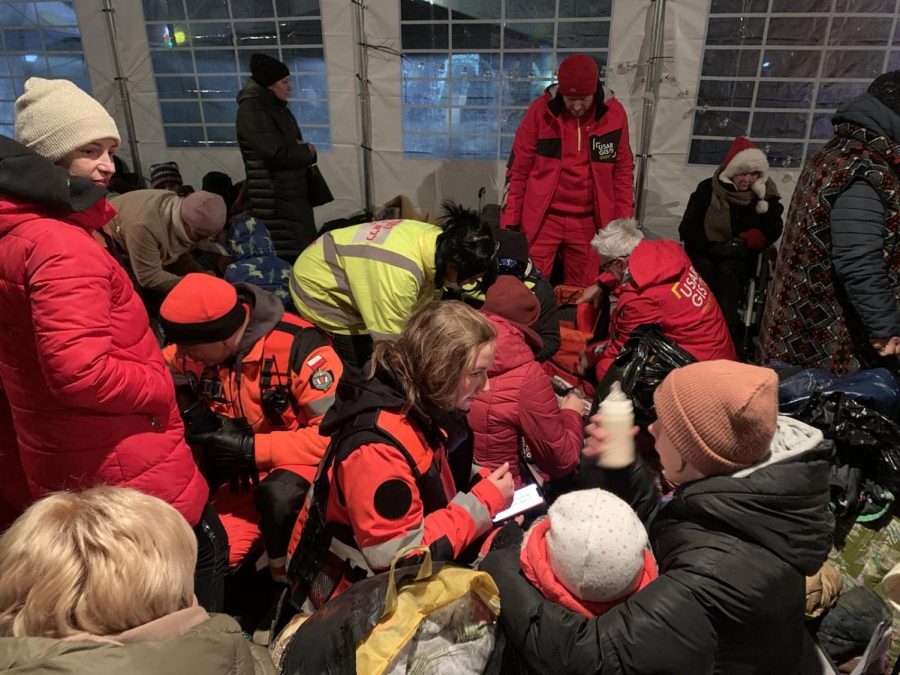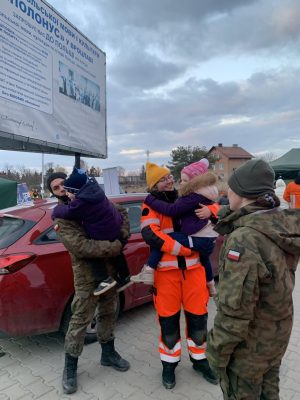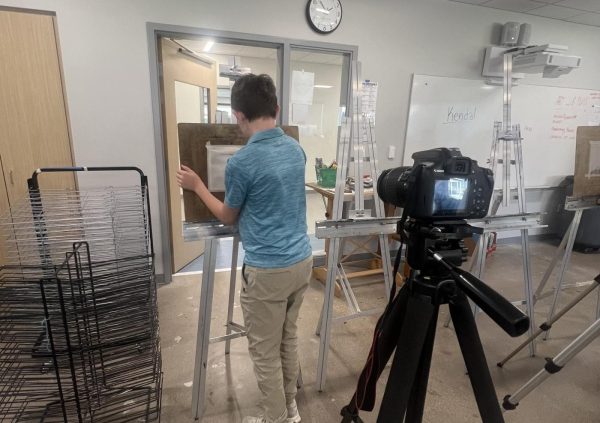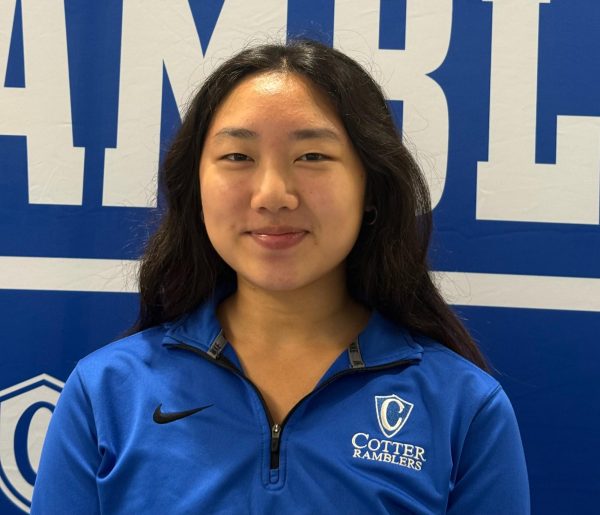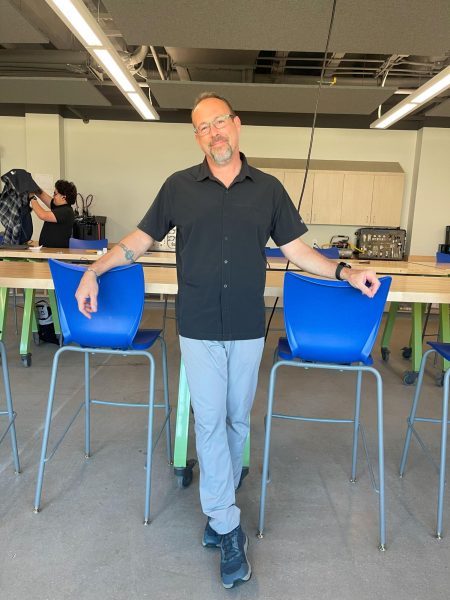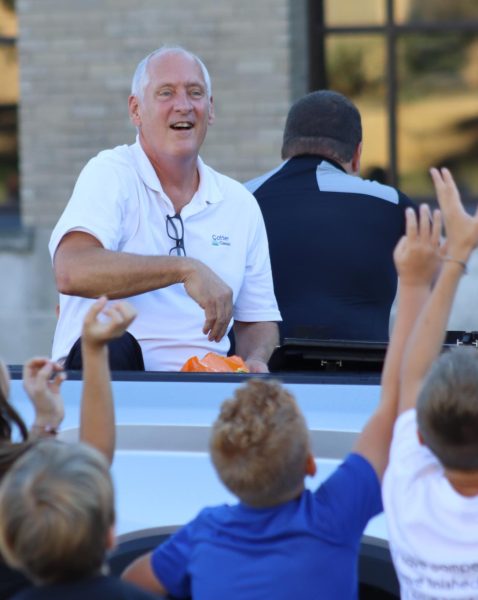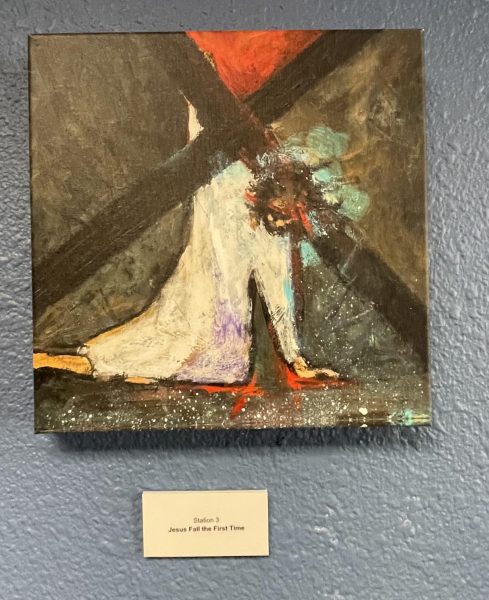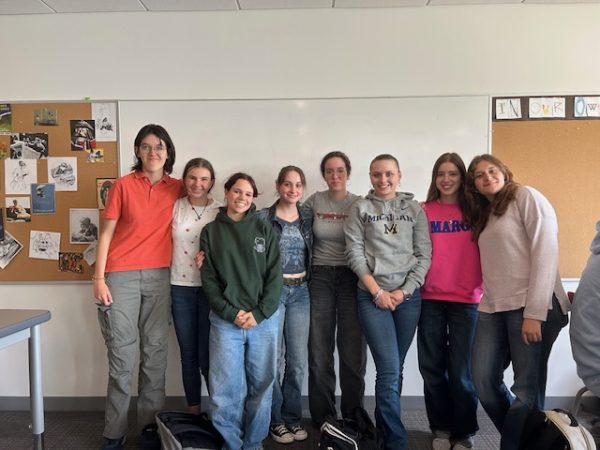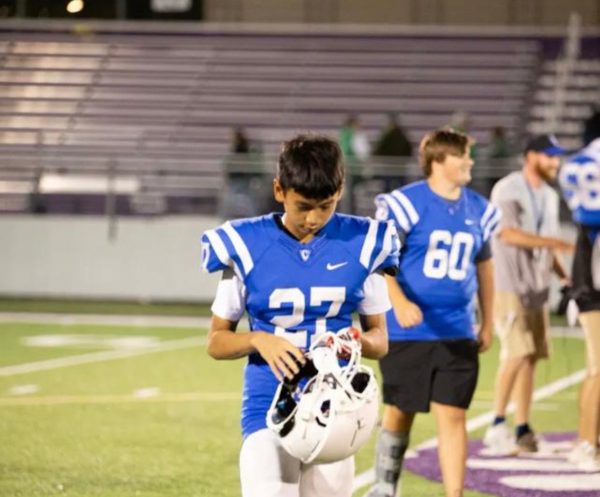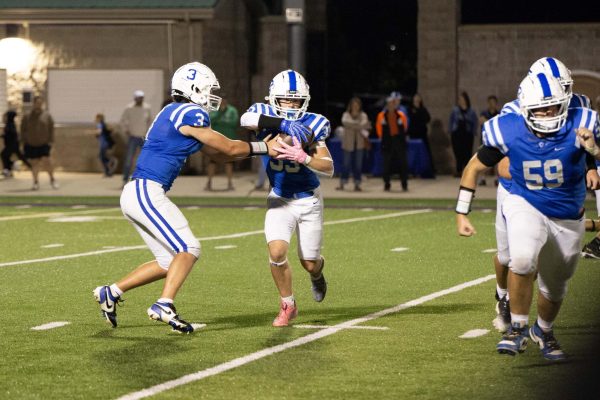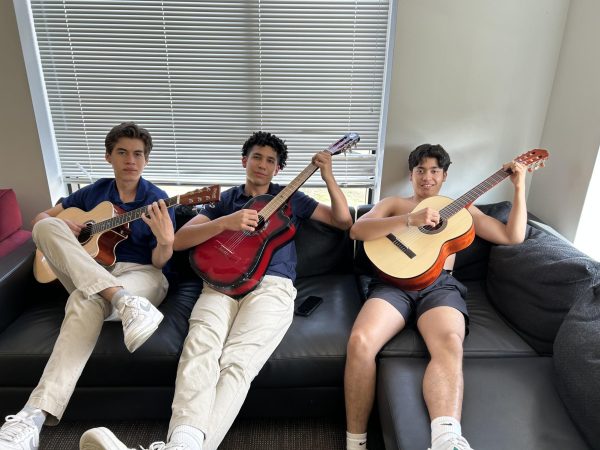Former Cotter student working on Ukraine border
Photo Courtesy of Agnieska Kuszaj
Agnieszka and others givng aid to refugees at the Ukraine-Poland border.
In the freezing cold of February and March, over 3 million Ukrainian refugees began to make their way to Poland.
At Medyka’s border crossing, Agnieszka Kuszaj and her friends bundled up in thick, orange coats to set up one of the first aid-checkpoints. People with stress-related epilepsy attacks, toddlers without gloves, children with sprained and bloody ankles, and babies with hypothermia that they didn’t think would survive are just a few of the horrifying and unforgettable images she witnessed.
Often, it can seem as though Cotter is far away from this conflict and these images. But with our international community, we are closer to the Ukraine-Russia conflict than we may think. Agnieszka Kuszaj is a former Cotter student who now lives in Warsaw, Poland, 485 miles from the Poland-Ukraine border. She was an exchange student at Cotter during the 2019-2020 school year before heading back to Poland to finish up her high-schooling.
Her current school is a private Catholic school administered by the Sisters of the Holy Family of Nazareth, and has boarding students. As a boarding school, Agnieszka explains that”it created possibility for Ukrainian refugees to study and live there for free. It offers support to their families and also creates safe space for them. Additionally my school helps to organize collections and sends donations to Ukraine.”
Other than her school heading to the border, she heads there herself through the organization Straż Narodowa, to care for Ukrainian refugees with her basic first-aid training. “I spent cumulatively over two weeks there,” Agnieszka recounts, “but our people are there non-stop; we are exchanging each other. We do not only provide first aid but help out on the site in general, plus we organize transports of medical products into Ukraine.”
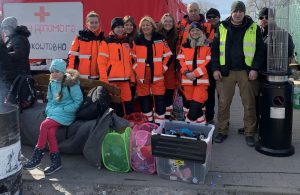
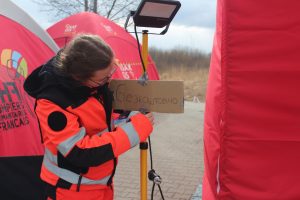
While working at the border, Agnieszka did more than give medical help. “Other than first aid I spent there quite some time, I talked to the people… sometime it is all they need. I heard some blood curdling stories, I saw images that I would never forget… It is all a lot to process.”
“Something I will remember the most was meeting three girls: first two were around my age and they didn’t know where to go after they crossed the border. I joked that the world is their oyster right now, they can go wherever: Paris, London, Rome… they looked at me and asked where is the closest where they can sit down and rest. They were my age. Three weeks ago they were probably planning their summer trips and fancy parties… and now their top priority was to rest “wherever’.”
“Third girl was couple weeks later. She brought her mother to our first aid point and after my friends were taking care of her, I brought her tea and we started to chat. I asked where she was coming from, do they have any plans, where are they heading… she looked at me and said that she is … she was from Mariupol. She was born and raised there but she doesn’t know if she can say it anymore as the city basically does not exist anymore.”
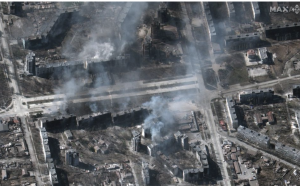
As Agneiszka explains, “Cities like Mariupol are completely destroyed and also civilians are being targeted…It’s been over 80 days of conflict right now, more than 3 mln refugees fleed to Poland; Russian soldiers do massive genocide and war crimes….”
Furthermore, Agnieszka tells us that; “Experts estimate that it [the Russia-Ukraine conflict] is going to last at least the whole next year. Ukraine fights with all their power and Russia just sent its army. Putin may have lost couple high tech tanks, but he has millions of citizens that could be mobilized.”
“International response is not sufficient- the situation is similar to 1938-1939, when everyone tried to appease Hitler instead of stop him, believing that he will get some land and stop on his own- we all know how it ended. And everyone in eastern Europe knows that Russia won’t settle for less than they believe they deserve which is Baltic and post-soviet states. We’ve been through too much with them during history to believe they’ll stop easily.”
“Polish people are doing everything they can to help as much as we can. Our politicians are trying to wake up European governments to take action, our people are opening their homes to the refugees (fun fact, there is not one refugee camp for Ukrainians in Poland. All the people had found rest in transformed schools, free hotel rooms, and individual people’s homes) supporting them as much as we can.”
Perhaps Cotter is not near the border of Ukraine, but we can still help this crisis; for instance, Agnieszka mentions that it is beneficial to donate to organizations such as Straż Narodowa, (the organization Agnieszka is going to the border with) and Caritas, a Catholic service organization currently helping Ukrainian refugees.
But the Ukrainians not only need help physically, but spiritually, as Agnieszka asks;
“Please keep praying for everyone, especially for aggressors to stop their invasion and for the strength of refugees and those helping them.”
Cotter’s thoughts and prayers are with you, Agnieszka, and everyone in Ukraine and Russia.


